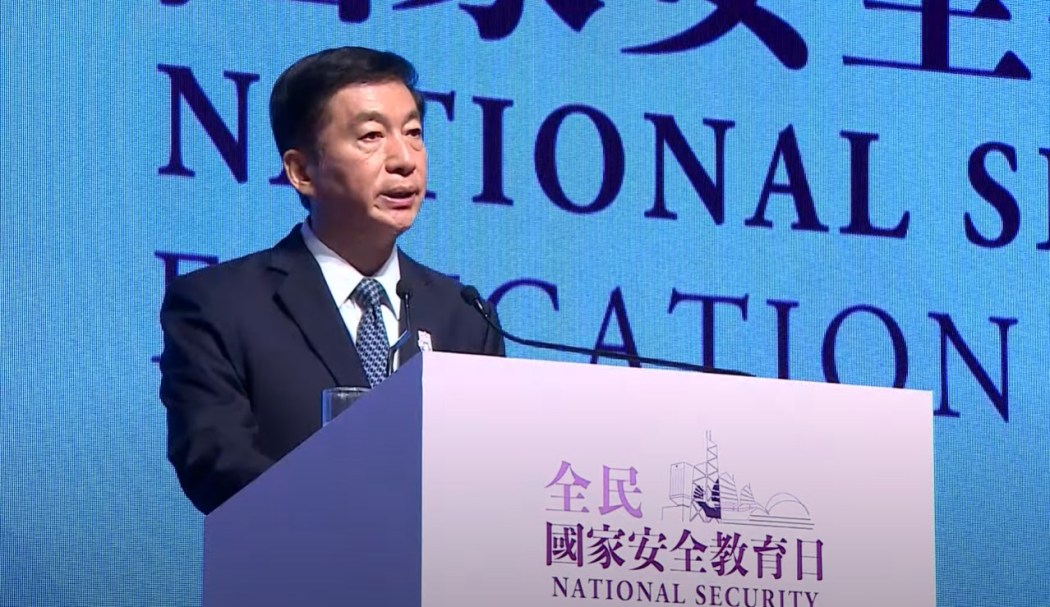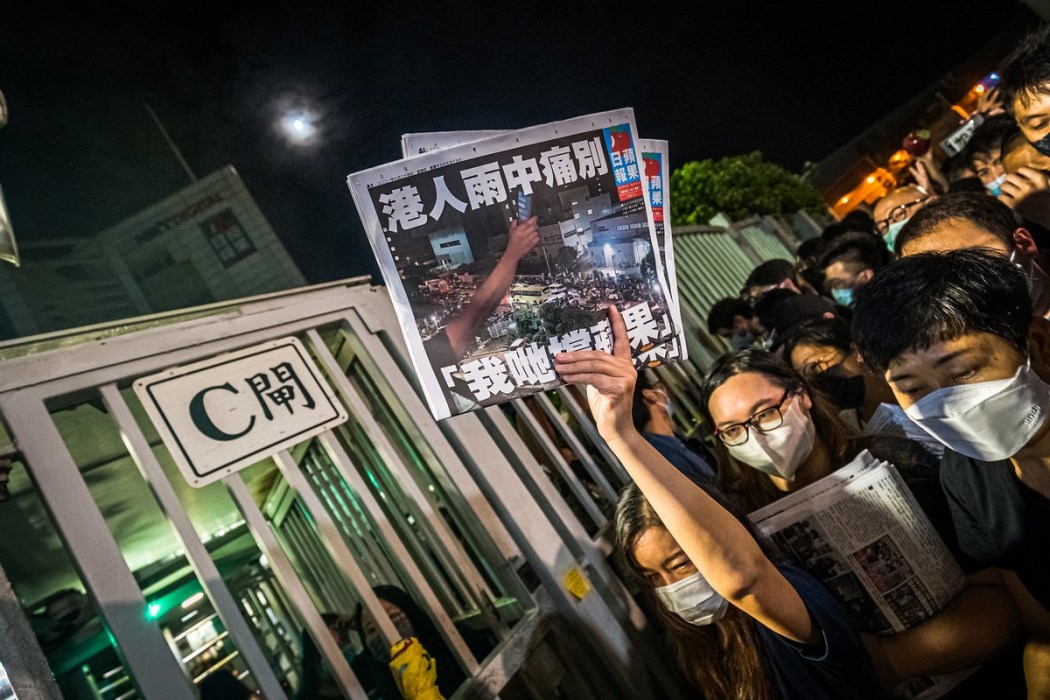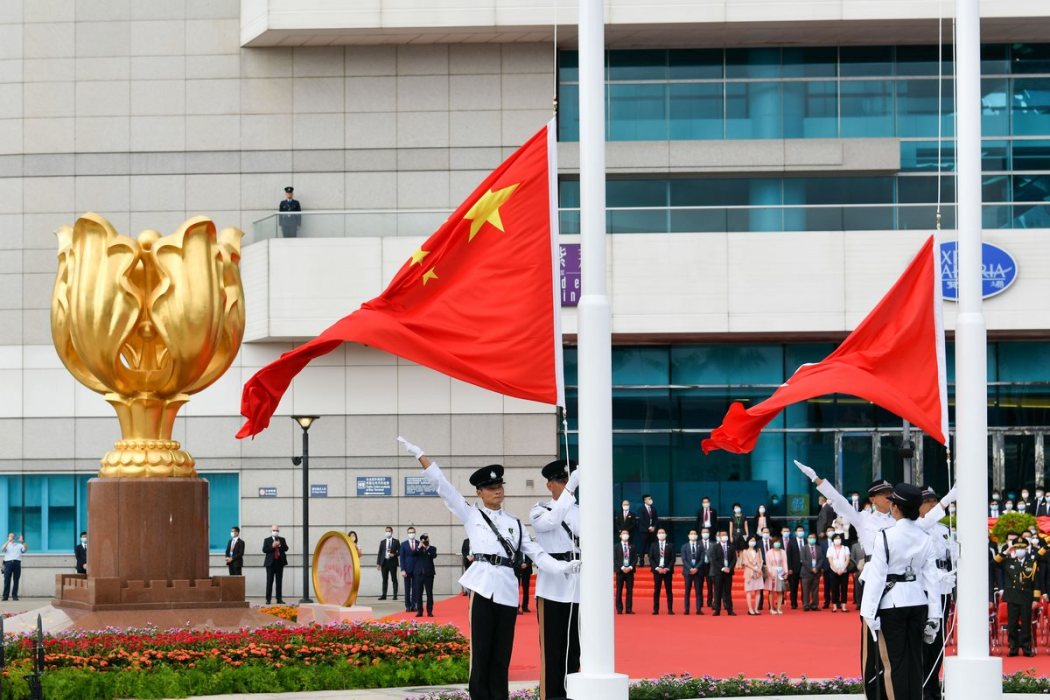Even before the official celebrations for the 100th anniversary of the Communist Party of China (CPC) have begun, Beijing’s officials in Hong Kong – joined slavishly by Chief Executive Carrie Lam Cheng Yuet-ngor – are full of bluster and bombast about the party’s role in transforming the city from a cauldron of chaos into an island of stability.
The recently arrived commissioner of the Chinese Ministry of Foreign Affairs, Liu Guangyuan, has pledged to defend Hong Kong against “foreign forces” bent on destroying the city, now marking 24 years since the resumption of Chinese sovereignty, and halting “the historical trend towards the great rejuvenation of the Chinese nation under the CPC.”

Liaison Office chief Luo Huining, presently the outspoken de facto head of our local government, hailed what he characterised as “a heightened sense of belonging to the motherland, a stronger sense of identification with the party and a stronger sense of pride in being Chinese” that Hongkongers will necessarily feel as the party marches the nation toward new heights.
And, in a particularly galling moment for many Hongkongers, Lam – whose husband and two sons hold British nationality – offered fulsome thanks to Beijing for saving the “one country, two systems” governing model that Chinese authorities have in reality largely destroyed over the past year.
Now that the party has saved the city, Lam added, Hongkongers can feel free to “embrace patriotism, national pride, team spirit and hard work.” And, of course, her government will always be “putting the people’s interest first.”
So let the celebrations begin!

But what many Hong Kong people will actually be commemorating this July 1 is not what Chinese and Hong Kong officials are touting as the CPC’s awe-inspiring achievements but, rather, the abiding insecurity of a party that is now bankrupt of any ideology beyond blatant mercantilism and determined to crush dissent wherever its voice is raised.
This insecurity is on grand display in Hong Kong – little Hong Kong, which apparently posed such a gargantuan threat to the stability of the nation and the lifeblood of the party that its long-cherished personal freedoms had to be crushed under the boot of draconian national security legislation enacted a year ago this week.
Over the course of that year, the Legislative Council, formerly a place where pro-democracy voices could be heard loud, clear and often, has been utterly eviscerated of all meaningful opposition as many pan-democratic leaders have either fled to foreign lands or been thrown in jail. And just last week the pro-democracy Apple Daily, one of the Hong Kong government’s strongest and most persistent critics for the past 26 years, was forced to shut down after the arrests of its editor-in-chief and top executives and a government freeze on its assets on grounds of national security.

Lam and her two recently elevated hard-line ministers – Chief Secretary John Lee Ka-chiu, formerly security tsar, and ex-police commissioner Chris Tang Ping-keung , now secretary for security – are staunch proponents of the national security law, boasting that it has brought peace and order to a city that had been rocked to its core by anti-government protests during a large part of 2019 and into 2020.
But, of course, Covid-19 also played a big role in clearing Hong Kong’s streets of protests and, in any case, the newfound peace that Hongkongers experience today is an eerie and unsettling one rooted in fear.
July 1 used to be a uniquely Hong Kong occasion which was half celebration of the “one country, two systems” arrangement that made possible the successful handover, and half lament for the shortcomings of that arrangement and the flaws in the political leaders charged with implementing it.
We witnessed flag-raising and patriotic champagne toasts offered by officials gathered in Golden Bauhinia Square in Wan Chai while at the same time tens of thousands of protesters gathered up their banners and their grievances and headed for the streets.
It was a day of vibrant, colourful contrasts serving to underscore freedoms enjoyed by the people of Hong Kong that simply did not exist anywhere else in China.

It was a day to be proud to call yourself a Hongkonger.
No longer. Now it is a day to mourn the loss of those freedoms and grimly acknowledge a dark new reality.
Throughout its chequered 100-year history – which, let’s remember, included some of the greatest man-made catastrophes of the 20th century – including the Great Chinese Famine and the Cultural Revolution – the CPC, whether its members were donning Mao suits or tailor-made Armanis, has maintained one overriding objective: power.
In Tibet, in Xinjiang and now in Hong Kong.
Support HKFP | Policies & Ethics | Error/typo? | Contact Us | Newsletter | Transparency & Annual Report | Apps
| HKFP is an impartial platform & does not necessarily share the views of opinion writers or advertisers. HKFP presents a diversity of views & regularly invites figures across the political spectrum to write for us. Press freedom is guaranteed under the Basic Law, security law, Bill of Rights and Chinese constitution. Opinion pieces aim to point out errors or defects in the government, law or policies, or aim to suggest ideas or alterations via legal means without an intention of hatred, discontent or hostility against the authorities or other communities. |
Help safeguard press freedom & keep HKFP free for all readers by supporting our team

More HKFP OPINION:
HKFP has an impartial stance, transparent funding, and balanced coverage guided by an Ethics Code and Corrections Policy.
Support press freedom & help us surpass 1,000 monthly Patrons: 100% independent, governed by an ethics code & not-for-profit.










